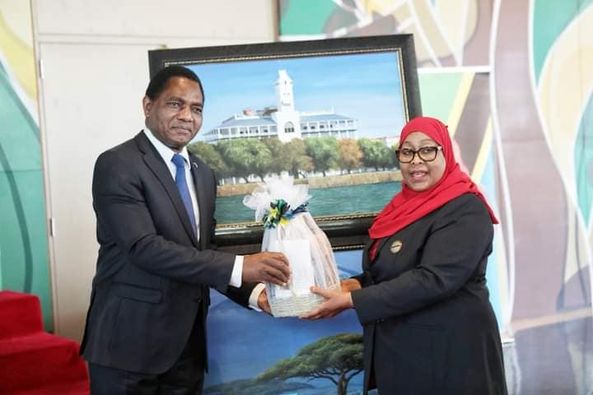At least 61 percent of Tanzania’s population is happy with the government’s overall governance of the economy, a new survey has shown.
The Afrobarometer report by the Policy Research for Development (REPOA), however, shows that Tanzanians are concerned with rising prices and youth employment.
With Western powers imposing sanctions on Russia due to the war in Ukraine and, in essence, disrupting the supply chain for a number of imports, Tanzania, just like its peers in the region, has seen a rise in the prices of petroleum products, fertiliser, wheat flour, and cooking oil, among others.
The situation has become complex as the US adopts monetary policies that seek to control inflation, thereby making the Dollar expensive across the world.
But according to Afrobarometer, Tanzanians remain optimistic about the direction of the country as far as the economy is concerned.
President Samia Suluhu Hassan’s economic reforms, which are centred on attracting investments, give Tanzanians hope that the government is serious about boosting economic growth and creating jobs.
They are also positive about the government’s performance in service delivery.
Conducted in 2021–2023, the report released yesterday focused primarily on five areas, including economy, rule of law, preferred form of governance, democracy, and trust in public institutions.
Speaking to journalists after releasing the study results, REPOA executive director Dr Donald Mmari said 82 percent of respondents approve of the government’s performance in addressing education needs, while 69 percent of the citizens approve of the government’s provision of basic health services.
Again, the government’s performance in fighting corruption is perceived to be high, with 65 percent, despite a slight decrease from the previous survey.
However, major improvements have been recorded over the past fifteen years. “In general, this is the opinion of the people on the economic area.
Although they have seen that there is a challenge with inflation and employment, they still have faith in their government that it will continue to do well.
This means that the people are giving direction to the areas that public institutions need to work on,” he stressed.
Dr Mmari said the study gives an indication that there are areas that the government needs to work on despite the fact that the population is largely happy in several other areas.
This, he said, was because, despite exuding confidence in the government’s performance, only 45 percent of respondents were happy with job creation measures.
On democracy, a majority of respondents said that, though there are minor problems, the supply of democracy is high and citizens are happy with the way democracy works in the country.
They also expressed their optimism regarding the government’s take on freedom of expression, noting, however, that the government’s intervention must be considered in a situation where excessive freedom would lead to insecurity.
Reacting to the survey study, a researcher on gender issues, Ms Loreen Kiswaga, said the research was good and that it has shown how women are involved at various levels of decision-making.
She said the study has also shown how the people are satisfied with the development of the country, which, she said, is a big improvement compared to previous surveys.
“There are some challenges, as evidenced by the survey findings, and we hope the relevant institutions will work on them,” she said.
On the other hand, a researcher Mr Eric Thomas said the research has shown how the government serves its citizens compared to neighbouring countries.
Respondents from nine regions participated in the Afrobarometer survey.
